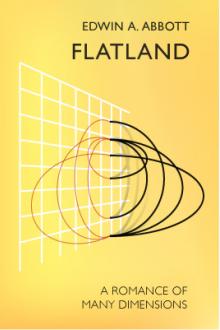Lorna Doone: A Romance of Exmoor, R. D. Blackmore [websites to read books for free txt] 📗

- Author: R. D. Blackmore
Book online «Lorna Doone: A Romance of Exmoor, R. D. Blackmore [websites to read books for free txt] 📗». Author R. D. Blackmore
It was lucky that I came home so soon; for I found the house in a great commotion, and all the women trembling. When I asked what the matter was, Lorna, who seemed the most self-possessed, answered that it was all her fault, for she alone had frightened them. And this in the following manner. She had stolen out to the garden towards dusk, to watch some favourite hyacinths just pushing up, like a baby's teeth, and just attracting the fatal notice of a great house-snail at night-time. Lorna at last had discovered the glutton, and was bearing him off in triumph to the tribunal of the ducks, when she descried two glittering eyes glaring at her steadfastly, from the elder-bush beyond the stream. The elder was smoothing its wrinkled leaves, being at least two months behind time; and among them this calm cruel face appeared; and she knew it was the face of Carver Doone.
The maiden, although so used to terror (as she told me once before), lost all presence of mind hereat, and could neither shriek nor fly, but only gaze, as if bewitched. Then Carver Doone, with his deadly smile, gloating upon her horror, lifted his long gun, and pointed full at Lorna's heart. In vain she strove to turn away; fright had stricken her stiff as stone. With the inborn love of life, she tried to cover the vital part wherein the winged death must lodge—for she knew Carver's certain aim—but her hands hung numbed, and heavy; in nothing but her eyes was life.
With no sign of pity in his face, no quiver of relenting, but a well-pleased grin at all the charming palsy of his victim, Carver Doone lowered, inch by inch, the muzzle of his gun. When it pointed to the ground, between her delicate arched insteps, he pulled the trigger, and the bullet flung the mould all over her. It was a refinement of bullying, for which I swore to God that night, upon my knees, in secret, that I would smite down Carver Doone or else he should smite me down. Base beast! what largest humanity, or what dreams of divinity, could make a man put up with this?
My darling (the loveliest, and most harmless, in the world of maidens), fell away on a bank of grass, and wept at her own cowardice; and trembled, and wondered where I was; and what I would think of this. Good God! What could I think of it? She over-rated my slow nature, to admit the question.
While she leaned there, quite unable yet to save herself, Carver came to the brink of the flood, which alone was between them; and then he stroked his jet-black beard, and waited for Lorna to begin. Very likely, he thought that she would thank him for his kindness to her. But she was now recovering the power of her nimble limbs; and ready to be off like hope, and wonder at her own cowardice.
'I have spared you this time,' he said, in his deep calm voice, 'only because it suits my plans; and I never yield to temper. But unless you come back to-morrow, pure, and with all you took away, and teach me to destroy that fool, who has destroyed himself for you, your death is here, your death is here, where it has long been waiting.'
Although his gun was empty, he struck the breech of it with his finger; and then he turned away, not deigning even once to look back again; and Lorna saw his giant figure striding across the meadow-land, as if the Ridds were nobodies, and he the proper owner. Both mother and I were greatly hurt at hearing of this insolence: for we had owned that meadow, from the time of the great Alfred; and even when that good king lay in the Isle of Athelney, he had a Ridd along with him.
Now I spoke to Lorna gently, seeing how much she had been tried; and I praised her for her courage, in not having run away, when she was so unable; and my darling was pleased with this, and smiled upon me for saying it; though she knew right well that, in this matter, my judgment was not impartial. But you may take this as a general rule, that a woman likes praise from the man whom she loves, and cannot stop always to balance it.
Now expecting a sharp attack that night—when Jeremy Stickles the more expected, after the words of Carver, which seemed to be meant to mislead us—we prepared a great quantity of knuckles of pork, and a ham in full cut, and a fillet of hung mutton. For we would almost surrender rather than keep our garrison hungry. And all our men were exceedingly brave; and counted their rounds of the house in half-pints.
Before the maidens went to bed, Lorna made a remark which seemed to me a very clever one, and then I wondered how on earth it had never occurred to me before. But first she had done a thing which I could not in the least approve of: for she had gone up to my mother, and thrown herself into her arms, and begged to be allowed to return to Glen Doone.
'My child, are you unhappy here?' mother asked her, very gently, for she had begun to regard her now as a daughter of her own.
'Oh, no! Too happy, by far too happy, Mrs. Ridd. I never knew rest or peace before, or met with real kindness. But I cannot be so ungrateful, I cannot be so wicked, as to bring you all into deadly peril, for my sake alone. Let me go: you must not pay this great price for my happiness.'
'Dear child, we are paying no price at all,' replied my mother, embracing her; 'we are not threatened for your sake only. Ask John, he will tell you. He knows every bit about politics, and this is a political matter.'
Dear mother was rather proud in her heart, as well as terribly frightened, at the importance now accruing to Plover's Barrows farm; and she often declared that it would be as famous in history as the Rye House, or the Meal-tub, or even the great black box, in which she was a firm believer: and even my knowledge of politics could not move her upon that matter. 'Such things had happened before,' she would say, shaking her head with its wisdom, 'and why might they not happen again? Women would be women, and men would be men, to the end of the chapter; and if she had been in Lucy Water's place, she would keep it quiet, as she had done'; and then she would look round, for fear, lest either of her daughters had heard her; 'but now, can you give me any reason, why it may not have been so? You are so fearfully positive, John: just as men always are.' 'No,' I used to say; 'I can give you no reason, why it may not have been so, mother. But the question is, if it was so, or not; rather than what it might have been. And, I think, it is pretty good proof against it, that what nine men of every ten in England would only too gladly believe, if true, is nevertheless kept dark from them.' 'There you are again, John,' mother would reply, 'all about men, and not a single word about women. If you had any argument at all, you would own that marriage is a question upon which women are the best judges.' 'Oh!' I would groan in my spirit, and go; leaving my dearest mother quite sure, that now at last





Comments (0)